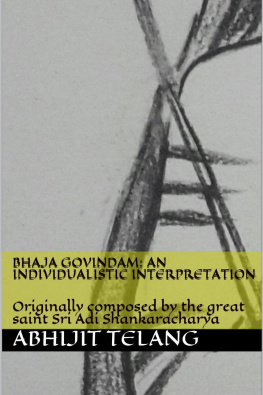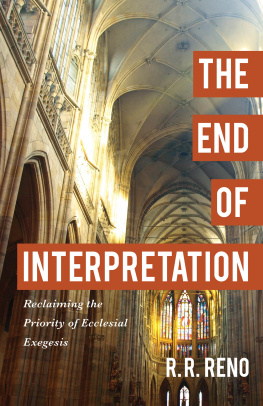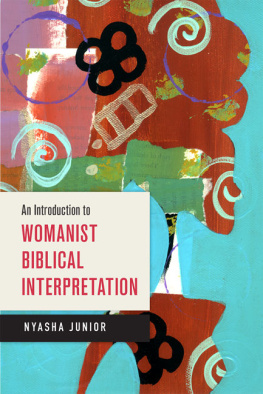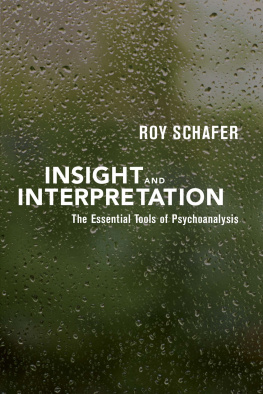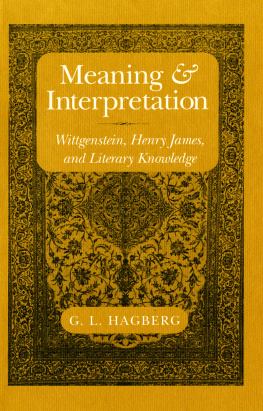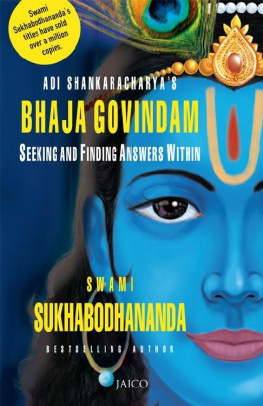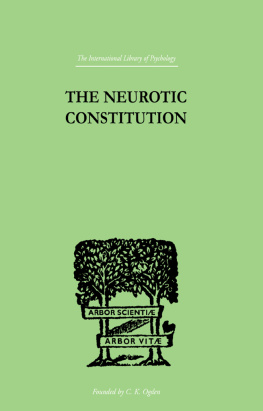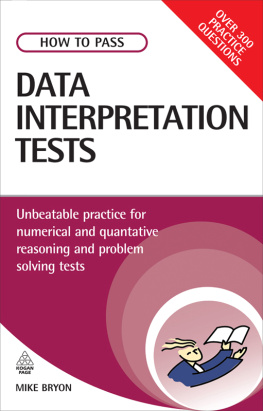
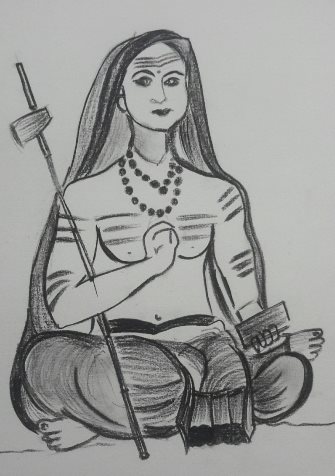
Adi Shankaracharya
(Bhaja Govindam)
An individualistic interpretation of which was originally composed by the great saint Sri Adi Shankaracharya.
By Abhijit Telang
To my loving mother, Nirmala Anant Telang, my loving wife, Preeti and in memories of my beloved late brother Jayant Anant Telang and late father Anant Govind Telang.
-Abhijit Anant Telang
C ontents
Credits
Prologue
Verse 1
Verse 2
Verse 3
Verse 4
Verse 5 and 6
Verse 7
Verse 8
Verse 9
Verse 10
Verse 11
Verse 12 and 13
Verse 14
Verse 15
Verse 16
Verse 17
Verse 18
Verse 19
Verse 20
Verse 21
Verse 22
Verse 23
Verse 24
Verse 25
Verse 26
Verse 27
Verse 28
Verse 29
Verse 30
Verse 31
Verse 32
Verse 33
References
Prologue
In this short write up, I am going to elaborate only on the essence of great sage Shri Adi Shankaracharyas sacred composition named Bhaja Govindam. For the sake of brevity and focus on the topic, I am going to assume that readers are already aware and have read at least one account of such composition, or its translation elsewhere. There have been numerous such efforts in the past which have been authored by many learned authors and commentators and hence I am not going to repeat the traditional, anecdotal, historical references which have been documented and depicted earlier.
Rather, I am simply going to make a humble attempt to lay out my own reflections about Shri Adi Shankaracharyas composition. I hope you may find some resonance with it.
Again, just a disclaimer that, I am not and do not claim to be an expert in such topics. I am also not writing to present alternative facts or to dispute any previously made claims or interpretations. What I intend to present are simply my own independent reflections.
I hope you enjoy reading it.
A bhijit Telang
I ndividuality is urged by Adi Shankaracharya to apply ones cognitive abilities towards seeking Lord, the Sublime Creator, the Heavenly Father, the Omniscient, Omnipotent, and Omnipresent Lord. When the cognitive powers are applied instead to advance egotistical pursuits, the individuality suffers further distancing oneself from Him, as it itself serves to guide oneself, further darkening the delusion, unless it reorients its struggle towards the Almighty Lord.
D ifference between greed and compulsion to act should be noted here. What actions must be done in accordance with the sublime virtues and principles must be done. Bodied existence cannot survive without economic participation. However, greed to acquire, possess, and accumulate can easily destroy any sense of virtue that is left in consciousness. Tendencies to hoard, snatch, loot from others, from Mother Earth, will destroy the very objective of this life form. The widening hole in consciousness will become even more gaping as it displaces virtues, principles, ethics, morality, humanity and any sense of equanimity, fairness, impartiality, truthfulness with just greed....
W eakness for the flesh , vulnerability to carnal desires can drag the consciousness from its highest echelons of ideation, from its nobility, from its cherished virtues and principles back to the hell of habituated hedonism where discretion is hated, wisdom is ridiculed, and virtues are virulently opposed.
T he precariousness of bodied existence is mentioned here. A water drop is a transient, ephemeral assembly of basic elements in Mother Nature whose place and position may not last long. A water drop may get displaced, it may get absorbed by another bigger drop or an assembly of such drops, it may get evaporated in the harsh sunlight or it may drop back into the pond that houses the lotus on which it rests currently. The displacing, evaporation or falling back of drop signifies the finite nature of bodied existence. This can be unsettling to ego of individuality which may strive hard to preserve its form. The sorrowful state of consciousness is due to delusive and egotistical pursuit of life where associated conceit, fallibility to vices, carnal tendencies and vulnerability to diseases (again understanding of disease should be beyond verbatim, in this case it is about corruption and rot that settles in ideological and sentimental outlook which threatens the survival of sanctity, purity, honesty, sincerity and truthfulness among consciousness).
Next page
